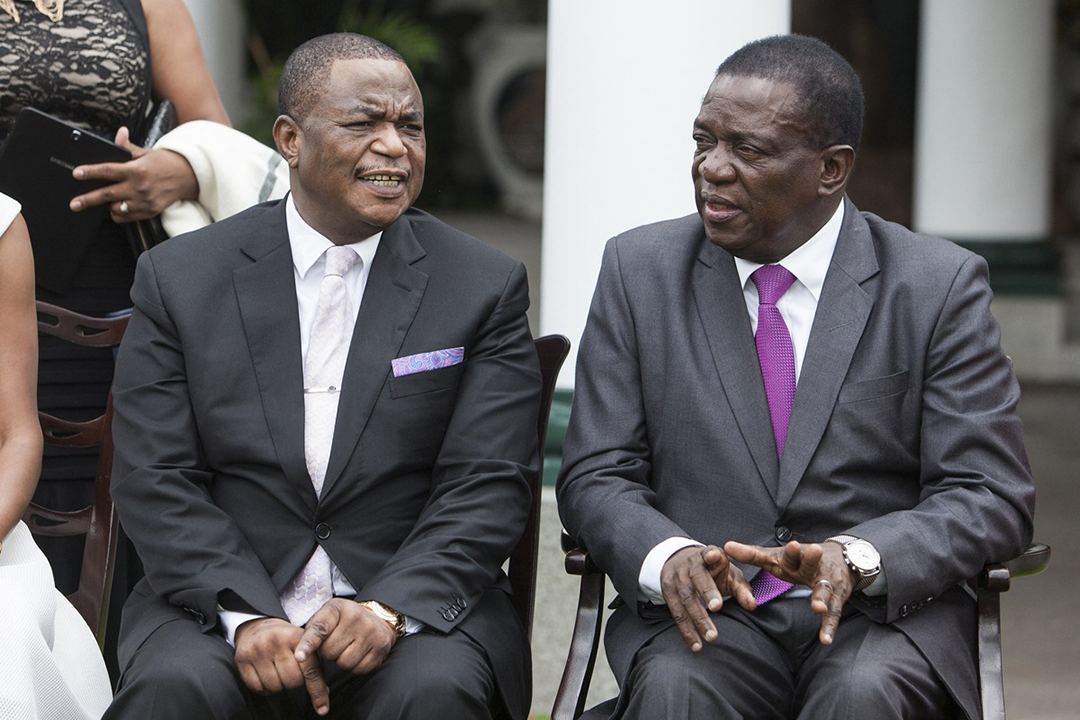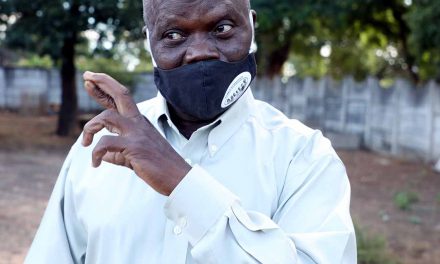New movement exposes fault lines dating back to Nigeria’s civil war
On weekdays, except Fridays, Dayo Abimbola drives from Ibadan, south-west Nigeria, where he stays with his wife and two daughters, to Ogun state, where he teaches in a privately owned university. On Mondays, he is on the road by 7am even though the trip is about 90 minutes long and his first class is at 9am; he does this to allow for any unforeseen traffic on his way to work.
But when the protests by End SARS (Special Anti–Robbery Squad) spread across the country last year, Abimbola’s routine was disrupted, forcing him to confront daily uncertainties including one day when he was caught in the middle of gunfire from security officers seeking to disperse a large crowd in the Molete area of Ibadan.
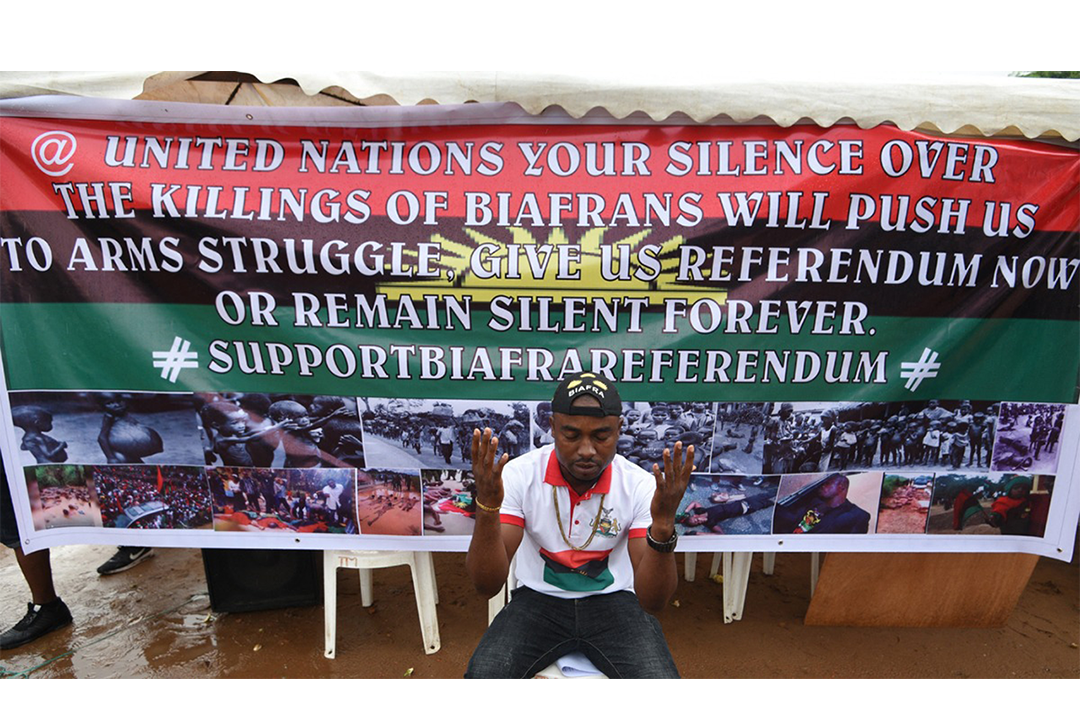
A man prays in front of a banner displayed on 30 May, 2018 at the Biafra district in Abidjan during a ceremony commemorating the Biafran War from 1967 to 1970. Photo: Sia Kambou/AFP
End SARS is a decentralised social movement aiming to call attention to, and end, the incessant cases of police brutality in Nigeria. Protesters demand, among others things, the disbanding of SARS, a notorious unit of the Nigerian Police with a long list of reported abuses.
What began with a social media hashtag in 2017, was revitalised by fresh revelations of police brutality in 2020, leading to city shutdowns, security clampdowns, curfews, arson and scores of deaths.
End SARS has resonated across and beyond Nigeria, with notable international personalities expressing solidarity with the protesters, including then US presidential candidate Joe Biden, who issued a statement in which he urged Nigerian president Muhammadu Buhari and the Nigerian military to cease the violent crackdown on protesters.
But the End SARS campaign struggled to gain broad support across the country, as highlighted in several media reports.
On social media, youths from the northern region of Nigeria were accused of shunning the End SARS protest, which Abdulazeez Suleiman, spokesperson for the Coalition of Northern Groups, said was untrue, although he admitted that the region was more interested in reform than in ending the controversial police unit.
“Our view is not to end SARS but to reform it. SARS is just a name. Reforming units and officers is the solution,” he said.
But beyond the level of support for the protests in the northern part of Nigeria, what also soon became obvious was an overlap between the movement and the Nigerian civil car. Widely referred to as the Biafra war, the conflict began on 6 July, 1967 and ended on 15 January, 1970. During the two and half years of conflict, according to available data, there were about 100,000 overall military casualties, while between 500,000 and two million Biafran civilians died of starvation.
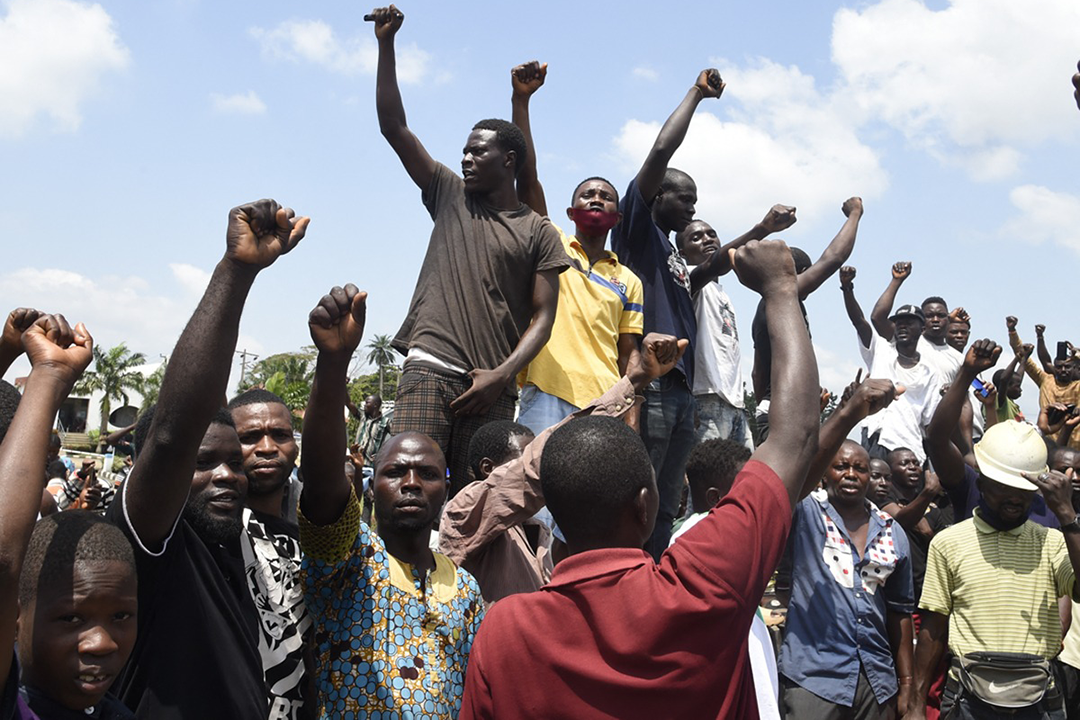
Protesters chant and sing solidarity songs as they barricade the Lagos-Ibadan expressway to protest against police brutality and the killing of protesters by the military, Magboro, Ogun State, 21 October, 2020. Photo: Pius Utomi Ekpei/AFP
Fought between the government of Nigeria and the secessionist south-eastern state of Biafra, amidst inter-ethnic conflict, a coup and claims that the federal government was marginalising the region, the war was a major chapter in Nigeria’s history of citizens’ dissatisfaction with the structure of government and the dynamics of governance in the country. The war ended in January 1970 when Biafra, cut off from supplies and its revenue-producing oil fields, surrendered.
Nigerian political analyst Bayo Ilori notes that the similarities between the Biafra war and End SARS protests are uncanny, adding that both movements are actually intertwined.
“Something that connects both is the fact that there is strong dissatisfaction with the status quo, such that many people were willing to risk getting killed in the quest for freedom and a better life,” he said.
It was therefore not surprising that the Indigenous People of Biafra (IPOB) encouraged End SARS demonstrators to take over the streets in response to the deployment of Nigerian soldiers to disperse rallies.
“As this struggle to free Nigerians from bondage gets to its crucial stage, IPOB urges the End SARS protesters not to give up,” IPOB’s Media and Publicity Secretary, Emma Powerful, said in a statement in October last year.
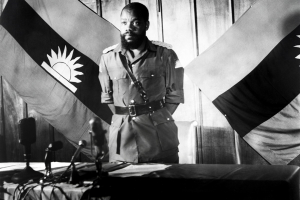
NIGERIA-BIAFRA-OJUKWU
Those opposed to the End SARS protests also described the movement as an extension of Biafra’s quest to secede. One of these was Adamu Garba, a former presidential aspirant. He described the End SARS protest as a “failed Biafra movement”. “Note that from now onwards, until the recommended deep filtering is done to critically separate #ENDSARS from Biafra, whatever you do for #ENDSARS you are knowingly or unknowingly advancing the movement of Biafra whose aim is to consume us all, not just the north. Mark this!” Garba said.
The End SARS campaign has emerged as a rallying cry for those still seeking the actualisation of Biafra’s demands for developmental equity and inclusion.
While protesters kept vigil at the Lekki toll gate, the epicentre of the End SARS protest, in October last year, former Niger Delta warlord Asari Dokubo was quoted as saying: “There is nothing to restructure or remodel about Nigeria. Instead of wasting our (Niger Deltans) time in cooperating with the Yorubas and Igbos in End SARS or restructuring protests, the only solution as Niger Delta people is to team together with the Ogonis and the Igbos and Efiks and reinvent Biafra because nobody can oppress the Ijaw man in Biafra.”
Political analysts have also pointed out that at the heart of the nationalist aspirations that fuelled the Nigerian civil war, was southerners’ frustration with the northern-dominated federal government, which they believed was not serving their interests. The same seems to hold true for the End SARS protest, which has also been fuelled by the government’s disregard for the demands of its people.
And as Ilori has noted, with the power of social media, young Nigerians created an End SARS campaign that trended globally. “They now know that they can get everyone’s attention when they unite with a common voice and clearly deliver their message. The movement has also shown that, unlike the initial belief, Nigerian youths can actually do more than tweet, they can also take to the streets,” he said.
Faced with the burden of ensuring that the End SARS protests did not escalate into a Biafra now or in the near future, Ilori said the Nigerian government needs to adopt and deploy a less confrontational approach, listening to the people and working to restore public trust in the government.
“Police and soldiers were killed by hoodlums who hijacked the protests and there is no guarantee it will not happen again,” he said. “Nobody is entirely safe. Moreover, the Nigerian government and its counterparts in other African countries need to now understand that force, threats and aggression will only jeopardise the delicate peace in their respective countries.”
Meanwhile, despite missing important meetings at work and enduring long hours in traffic during the protests, Abimbola identified with the protesters, whose actions he described as “justified”.
“Most of the problems that they complained about during the Biafra war are unsolved, with unemployment, a widening inequality gap and corruption all mixed with insecurity, making life more difficult for Nigerians than it was in the 70s,” he said. “The government needs to address the issues, not clamp down on the protesters, so that peace can quickly and fully return.”
Paul Adepoju is a Nigeria-based freelance journalist, scientist, academic, and author. He covers science, health, tech and development in Africa for leading local and international media outlets. He’s also the founder of healthnews.ng. He is completing a doctorate in cell biology and genetics and holds several reporting awards.


